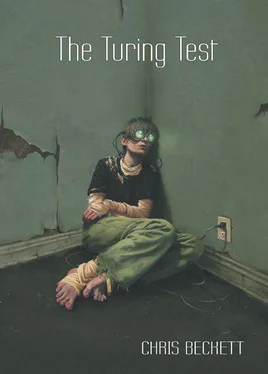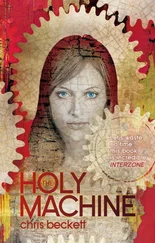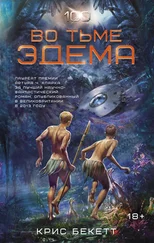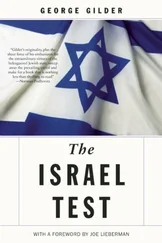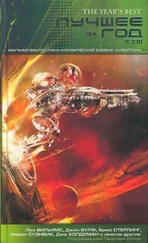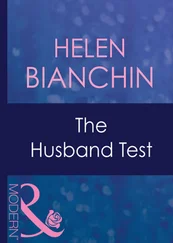* * *
Early next morning we were opposite Troy. If Han and I had been left alone to savour it, there would have been something quite magical about it: a sea as smooth as glass, islands in the hazy distance, the Aegean coast stretching away south, the mouth of the Dardanelles…. everything very still and softly luminous. And in the distance, across a pale plain of wheat and poppy flowers, was Hisarlík, a small hill, or really just a mound, which you would hardly notice at all if you didn’t know that it was the site of nine cities, each built on the ruins of the last, spanning a period of four thousand years from the Bronze age to the early Christian Era.
I would have enjoyed a morning just soaking all that in. But Dad as ever was busy, busy, busy.
“Right then, gun, torch and force shield each, but we can sort that out later. Mehmet, we need to prepare the Croesus for quite a jolt. Now let’s figure out how to use this thing. Alex, you’re the history expert. Tell us what date to aim for.”
“1242 b.c.” I said, using that strange numb kind of knowledge that comes with a splice. (You can’t feel it. It isn’t part of you. It isn’t woven together with other knowledge to become part of your intuitions and dreams. But when you look for it, suddenly it is there, and your own mouth is speaking it.) “Until about twenty years ago, no-one could have given an exact date and there were serious doubts as to whether there was any historical basis to the Homeric story at all. But, following the discovery of molecular memory…”
“1242 b.c.?” Dad, Mehmet and Han were all squatting round the time machine like little boys, trying to work out how to operate the controls and interpret the colourful displays.
“Right,” my father commanded. “Take a seat and hold on tight.”
Mehmet muttered something that ended with ‘Allah.’
There was a spine-jolting crack, as if the boat had dropped from several metres up in the air, and then a sudden temperature drop and a few seconds of violent rocking.
I had closed my eyes like I always do on things like rides at fairs, and now I cautiously opened them.
* * *
It was evening. Eerily spot-lit by the sun setting behind us, the landscape opposite was recognisably the same as before, and yet it was totally other in a way that sent goosebumps up and down my spine . The plain was brown and scorched where it had been green. There were no houses, but on the hill of Hisarlík, which had been no more than a sort of stump, there stood a wondrous structure gleaming in the sun. It was the still unvanquished Troy, its high walls faced from top to bottom with shining tiles, its mighty gates of bronze blazing with solar fire.
Little groans of awe came from the others. Even my father was silent as we struggled to take this experience in.
“Look,” said Han, “the Greek camp!”
We followed his gaze northwards to a dark city of tents and bonfires at the edge of the plain, with boats moored alongside. And then, almost simultaneously, we all exclaimed “The Horse!”
It wasn’t just a story! There it was, towering over the camp, lit by bonfires and the setting sun.
* * *
We left Mehmet in charge of the Croesus. We all had powerful walkie-talkies we could call him on and Dad instructed him to go back to our own era and get help if at any point he lost touch with us. (Dad was confident that the Croesus’ own formidable array of security devices would be more than a match for any surprise attack on the yacht itself). Then Dad, Han and myself went ashore in the tender, heading for the Greek camp.
What happened in the next few hours was so bizarre, so far beyond anything in my experience that much of it has become an incoherent and unreliable jumble, like scenes from early childhood, which I suppose is also a time when human beings find themselves in a strange and unfamiliar world.
I remember the camp stank of shit and ash and rotting meat. I remember heads on poles, some rotted to the bone, others still with skin and hair and eye sockets heaving with flies. I remember scrawny dogs and scrawny chickens and dirty little feral children. I remember captives tethered to wooden stakes, listless, fly-encrusted, some of them blinded or with severed limbs. I also seem to remember dismantled roundabouts and bits of ghost train and stacked sections of dodgems and waltzers. But I suppose that’s because the whole place reminded me of a fairground being packed away after the fair is over. Everything was being taken down, stacked, loaded into the little wooden boats that lined the shore.
The Greeks had of course seen the Croesus appear in the distance, and observed our approach. We were surrounded as soon as we landed by hard, skinny little men with jagged bronze-tipped spears. I think they intended to skewer us there and then. Han and I had our fingers on the button of our force shields. Han’s face was white as a corpse and probably mine was too, but Dad, who seemed to be enjoying himself enormously, switched his torch on to give a five second blast of artificial lightening and ear-splitting artificial thunder. All the Greeks screamed and ran for their lives except for a single one, taller and fairer than the others, who stubbornly stood his ground. He was a member of the ruling class it seemed, in Homeric terms a ‘king’, though probably the king of no more than some impoverished mountain village somewhere, or some tiny island.
“Who are you and why are you upheaved on the rim of the drinking vessel?” he demanded.
My splice could handle Modern Greek, New Testament Greek and Homeric Greek, but it struggled for a while before it mastered a Greek from times so ancient that even in Homer’s day they were the stuff of legend. My father’s translator clearly couldn’t handle it at all because he poked irritably at the thing a few times, shook it and then, utterly characteristically, tossed it away with a gesture of impatience and contempt.
“Tell him we come from another world, Alex. Tell him we know about the horse and we know it’s going to work because we can see the future.”
I repeated this and the man seemed to understand at least enough of whatever it was that came out of my mouth to look surprised and alarmed when I said the bit about the horse. I suppose it wasn’t meant to be common knowledge.
“Come with me. I will herd you to the nipple of the pine tree,” he told me.
The other Greeks had started creeping cautiously back. One was poking gingerly with his spear at Dad’s discarded translator.
We followed, Dad impatiently badgering me for information so that he could stay in control.
“What did he say, Alex? Where are we going? Tell him we want to go in the horse.”
But I bided my time, enjoying the experience – even in this context – of my father being dependent on me. A short while later were in the presence of a group of bearded and grim-looking patriarchs, sitting on rugs and being fussed over by semi-naked slave-boys and slave-girls.
“Tell them you and Hannibal want to be in the horse.”
“Me and Han? What about you.”
“No, no. This is your adventure Alex.”
I shrugged, affecting an indifference which I certainly did not feel, and made the request as asked to the assembled Achaean dignitaries.
There was a lot of head-shaking and doubtful sucking in of breath.
“Tell him you have great powers,” Dad said.
So I did, and we demonstrated for them the torches, the laser guns and the force shields. They were impressed, especially by the torch. They were much too dignified and aristocratic to run, but the fake thunder made them first go grey and stiff and then explode into a babble of animated debate. How they wished they could own such a thing! (Oddly the force shields interested them rather less, and one of them even claimed to have possessed such a thing himself since babyhood).
Читать дальше
